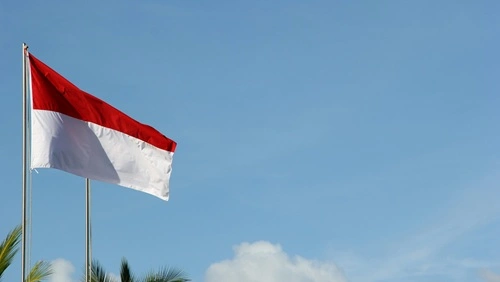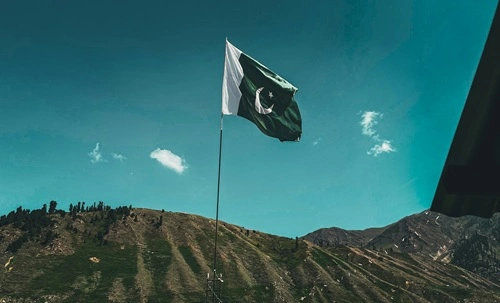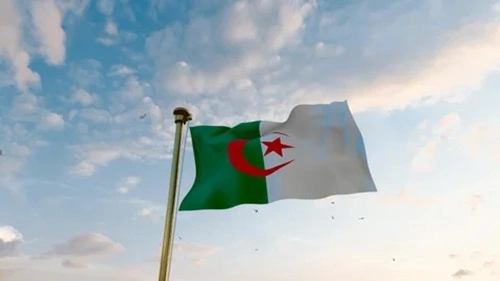Whether you believe in religion or not, it has been a remarkable source to shape cultures, communities, and global demographics in various ways. The top four largest religions, Christianity, Islam, Hinduism, and Buddhism, represent the beliefs of billions.
Among the most popular religions, Islam is one of the fastest-growing and the second largest around the globe. Islam has believers spread across every continent, from Southeast Asia to Africa. Islam dates back to the early 7th century, with historical roots that influence its modern demographic trends. As we are talking about the top 10 countries with the highest Muslim population in 2025, it is pretty easy to find Muslim population concentration in the Asian continent.
Here, we will not just explore the numbers but also the cultural and historical significance of Islam in each nation. Let’s take a deep dive:
1. Indonesia – 240 Million Muslims

Among the most populous Muslim countries, Indonesia remains the country with the largest Muslim population. Indonesia has a population of 280 million, where about 87% of the population follows Islam. The reason behind Muslim concentration dates back to the historical era when traders of Arabia, India, and China brought the religion to Indonesia.
- Capital of Indonesia: Jakarta
- Notable Facts: Indonesia is also the home to the world’s largest mosque in Southeast Asia, called Istiqlal Mosque, which can hold over 120,000 worshippers.
- Religious Diversity: Even with a huge Muslim majority, Indonesia is officially a secular state with a motto, “Unity in Diversity.”
2. Pakistan – 230 Million Muslims

Pakistan separated from India in 1947 with a Muslim population of around 75 million, but now Pakistan has the second-largest Muslim population in the world. The current Muslim population in 2025 is around 230 million.
- Capital: Islamabad
- Religious Sects: Predominantly Sunni
- Notable Facts: The Badshahi Mosque in Lahore is one of the largest and most beautiful mosques in the world.
3. India – 210 Million Muslims

India is a country with Hinduism as the majority, but it has one of the third-largest Muslim populations, with over 15% of the population following Islam. Muslims in India can be found in almost every state, with different languages, traditions, and cultural practices. Before the time of separation from Pakistan, India had a Muslim population of around 98 million people.
- Capital: New Delhi
- Notable Fact: The Mughal Empire left behind iconic Islamic architecture, including the Taj Mahal.
- Religious Diversity: In India, Islam is the second largest community after Hindus.
4. Bangladesh – 160 Million Muslims

A country with the highest dominance of Muslim population in the world is Bangladesh, with 90% of citizens following Islam. Faith in Islam was brought by Sufi Saints and traders who travelled to the land of Bengal during British rule.
- Capital: Dhaka
- Notable Fact: The world’s largest mosque is in Bangladesh, the Baitul Makarram National Mosque.
- Culture: Islam plays an important role in national festivals and public life.
5. Nigeria – 120 Million Muslims

After exploring the top countries with Muslim populations in Asia, our journey moves to Africa, a continent where Islam thrived for centuries. Nigeria is the most populous country with a Muslim population in Africa, where the religious diversity is evenly spread between Muslims and Christians.
- Capital: Abuja
- Notable Facts: Islam reached Nigeria through trans-Saharan trade routes hundreds of years ago.
- Cultural Blend: Islamic traditions in Nigeria often merge with local customs and languages.
6. Egypt – 100 Million Muslims

In the Arab world, Egypt is a cultural and religious hub where 98% population is Muslim. As there are two different sects in Muslim culture, Egypt has a predominantly Sunni population. Islam came to Egypt through Amr ibn al-As between 639 and 642 AD.
- Capital: Cairo
- Notable Facts: One of the oldest and most influential Islamic institutions in the world is Al-Azhar University in Egypt.
- Role in Islam: Egypt has many scholars and historical events that have shaped and spread Islam around the world.
7. Iran – 88 Million Muslims

Among all Muslim majority countries, the Sunni is a dominant sect due to several reasons. However, Iran is different as Iran has the highest number of Shia Muslims as the Majority in the country. Iran has a population of 89 million, of whom 88 million people believe in Islam. So, a country that has no other religion other than Islam is Iran.
- Capital: Tehran
- Notable Facts: The Imam Reza Shrine in Mashhad is one of the most important pilgrimage sites for Shia Muslims.
- Religious Influence: Iran’s Islamic culture is deeply linked to politics and identity.
8. Turkey – 85 Million Muslims

Turkey has modern secular governance in an Islamic tradition. This unique blend comes from geographical reasons as Turkey bridges Europe and Asia. If you look at the numbers, the Turkish population is 99% Muslim.
- Capital: Ankara (though Istanbul is the cultural capital)
- Notable facts: The Hagia Sophia in Istanbul, once a church, then a mosque, and now again a mosque, reflects Turkey’s layered history.
- Cultural role: Turkey’s Ottoman Empire played a major role in spreading Islam into Europe, Africa, and Asia.
9. Algeria – 46 Million Muslims

Algeria holds a unique place in this list as the entire population in this country believes in Islam and has followed this religion for centuries. So, Algeria is the most homogeneous Muslim country in the world.
- Capital: Algiers
- Notable fact: Islam is deeply tied to Algeria’s fight for independence from France.
- Culture: Algerian Islamic traditions are a blend of Arab, Berber, and French influences.
10. Sudan – 44 Million Muslims

A country that takes the tenth spot with a 92% majority of Muslims is Sudan. Even with several ethnic diversities, Islam is the fastest-growing religion in Sudan.
- Capital: Khartoum
- Notable fact: Sudan’s location along the Nile has made it a historical meeting point for African and Arab Islamic cultures.
- Religious law: Parts of Sudan follow Sharia law in their legal system.
Bottom Line
The Muslim population is growing steadily around the globe, which is mostly driven by higher birth rates. Youthfulness in a Muslim majority society is another reason behind the hike in Muslim’s population. While the religion is united by core beliefs, its expression differs from country to country, reflecting local history, culture, and traditions.


